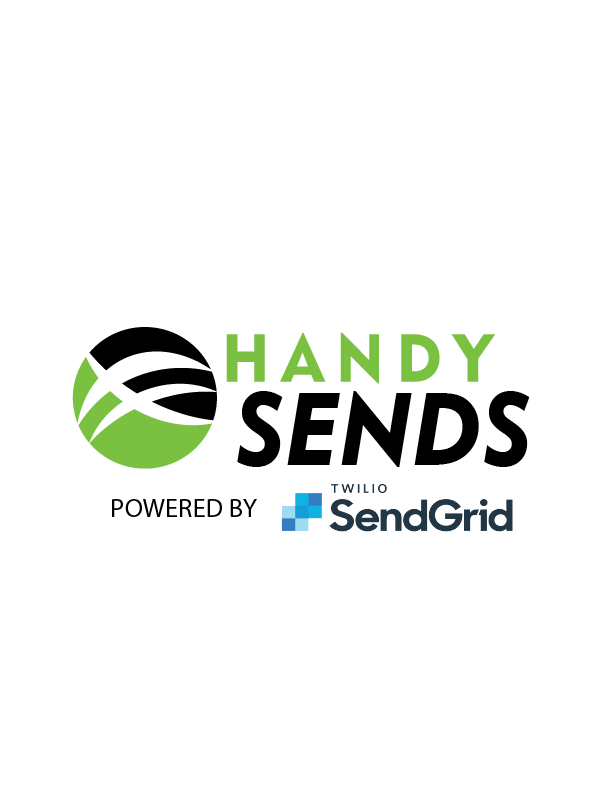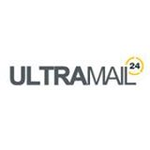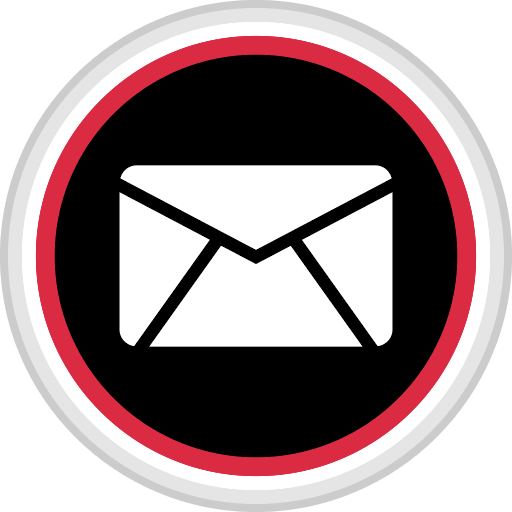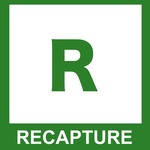Description

Emma by Marigold

HandySends
Comprehensive Overview: Emma by Marigold vs HandySends
It seems there might be a bit of confusion in your request, as "Emma by Marigold" and "HandySends" appear to refer to different products or services, possibly in the realm of digital marketing or communication tools. I'll address each component based on common interpretations, but if these are specific niche products or services outside my training data, you may need to provide additional context or verify their definitions.
a) Primary Functions and Target Markets
Emma by Marigold:
- Primary Functions: Emma is an email marketing platform designed to make the creation, delivery, and analysis of email campaigns straightforward and effective. It often includes features such as customizable email templates, audience segmentation, A/B testing, and email automation.
- Target Markets: The platform primarily targets small to medium-sized businesses (SMBs), marketing agencies, and non-profit organizations. Its easy-to-use interface appeals to companies looking for a user-friendly solution to handle their email marketing needs without the complexity of larger enterprise platforms.
HandySends:
- Primary Functions: Although not as widely recognized, HandySends could be inferred as an email or marketing tool focused on simplifying the process of sending emails or SMS, potentially with a focus on affordability and ease of use.
- Target Markets: Often such tools aim at small businesses, startups, or enterprises looking for cost-effective communication solutions, possibly catering to sectors like retail, hospitality, or direct-to-consumer brands.
b) Market Share and User Base
Determining the exact market share and user base is challenging without specific data, but general trends can be observed:
- Emma by Marigold tends to have a more established presence in the email marketing space due to its widespread recognition and comprehensive features, likely giving it a significant user base among medium-sized enterprises and smaller agencies.
- HandySends, if positioned as a niche or budget-friendly tool, may not have the same level of market penetration or brand recognition as Emma, limiting its user base compared to more established competitors.
c) Key Differentiating Factors
Emma by Marigold:
- User Experience: Emma is known for its intuitive user interface, making it accessible for users with varying levels of marketing experience.
- Comprehensive Features: Offers advanced segmentation, integrations with other marketing tools, and in-depth analytical capabilities.
- Support and Resources: Often highlighted for strong customer support and educational resources to help users maximize their campaigns.
HandySends:
- Affordability: Potentially markets itself as a budget-friendly option, offering essential features at a lower cost.
- Ease of Use: A simple, no-frills approach could make it appealing to businesses with straightforward communication needs.
- Focus on Specific Channels: If it prioritizes certain channels like SMS or basic email features, this could define its unique positioning.
Conclusion
Overall, Emma by Marigold appears to be a more established player in the field of email marketing, catering to those looking for a robust, feature-rich platform. HandySends might appeal to smaller businesses or startups with limited budgets and needs for basic communication tools. Understanding the exact features, integrations, and pricing of each can help more precisely determine their applicability to different business requirements.
Contact Info

Year founded :
2003
+1 615-292-5888
Not Available
United States
http://www.linkedin.com/company/emma-inc

Year founded :
Not Available
+91 63697 65570
Not Available
India
http://www.linkedin.com/company/handysends
Feature Similarity Breakdown: Emma by Marigold, HandySends
To provide a feature similarity breakdown for Emma by Marigold and HandySends, let's analyze their offerings based on the available information about email marketing platforms and their common industry practices. Both are known for their capabilities in marketing automation, email campaign management, analytics, and customer engagement.
a) Core Features in Common
-
Email Campaign Management:
- Both Emma and HandySends offer comprehensive tools for creating, managing, and sending email campaigns. This includes customizable templates, drag-and-drop editors, and A/B testing options.
-
Audience Segmentation:
- Each platform provides strong audience segmentation capabilities, allowing users to target specific groups based on demographics, behaviors, or past interactions to enhance personalization.
-
Analytics and Reporting:
- Both offer robust analytics and reporting features to track the performance of email campaigns, such as open rates, click-through rates, conversions, and engagement metrics.
-
Automation:
- They support marketing automation workflows, enabling users to set up automated email sequences triggered by user actions or specific dates.
-
Integrations:
- Common integrations with popular CRM systems, social media platforms, and other marketing tools to streamline operations and maintain data consistency.
b) User Interface Comparison
-
Design and Usability:
- Emma is known for its user-friendly interface with an emphasis on simplicity and ease of use, often appealing to users who prefer straightforward, intuitive navigation.
- HandySends also offers an easy-to-navigate interface, though it might have more customization options, allowing users with technical skills to tweak more aspects of the interface and campaign setup.
-
Customization:
- Both platforms offer drag-and-drop editors for email design, though HandySends may provide a wider range of customization options for those looking to have more control over minor design details.
-
Overall User Experience:
- User experience may vary based on the specifics of the user base, with Emma appealing heavily to small-to-medium-sized businesses for its simplicity, while HandySends might aim at slightly larger organizations with needs for more intricate setups.
c) Unique Features
Emma by Marigold:
-
Personalization Tools:
- Advanced personalization features that may include dynamic content capabilities, which allow highly tailored email experiences based on individual user data.
-
Creative Services:
- Offers access to creative services such as design and strategy consultation, which could be particularly useful for businesses needing assistance in crafting an effective email marketing approach.
HandySends:
-
Advanced Automation Triggers:
- It might offer more sophisticated automation triggers and workflow setups, allowing for complex, behavior-based automation sequences.
-
Event Management Integration:
- Potentially includes better tools for coordinating marketing around events, integrating event RSVP, reminders, and follow-up emails seamlessly within campaigns.
In conclusion, while Emma by Marigold and HandySends share many core features typical of email marketing platforms, they differentiate themselves through certain unique capabilities and their respective user interfaces. The choice between them would likely depend on specific business needs, such as the desire for advanced customization and automation or a preference for a simplified design process with additional creative support.
Features

Not Available

Not Available
Best Fit Use Cases: Emma by Marigold, HandySends
Emma by Marigold and HandySends are both tools designed to optimize communication and marketing strategies, but they cater to different needs and scenarios. Here is a detailed description of their best-fit use cases:
Emma by Marigold
a) Types of Businesses or Projects:
- Small to Medium-sized Enterprises (SMEs): Emma by Marigold is ideal for SMEs looking for an easy-to-use email marketing platform. It helps them effectively engage with their audience through visually appealing and personalized email campaigns.
- Marketing-focused Organizations: Companies with dedicated marketing teams that emphasize brand consistency will benefit from Emma’s design capabilities and personalization features.
- Event-driven Businesses: Organizations that conduct frequent events, like conferences or webinars, may find Emma useful for event promotions and follow-up communications.
d) Catering to Different Industry Verticals or Company Sizes:
- Retail: Emma's segmentation and automation features make it suitable for retail businesses aiming to send targeted promotions or newsletters.
- Nonprofits: Nonprofits may leverage Emma to communicate effectively with their supporters and donors through appealing storytelling and updates.
- Education: Educational institutions can use Emma to keep students and parents informed about events, updates, and newsletters.
HandySends
b) Preferred Scenarios:
- Transactional Communication Needs: HandySends is best suited for businesses that require a robust system for sending transactional messages like order confirmations, password resets, or notifications.
- High-volume Messaging: Organizations that need to send large volumes of messages efficiently, such as e-commerce platforms or logistics companies, might find HandySends more beneficial.
- APIs and Integrations: Companies looking for seamless integration of messaging with other software applications or platforms would prefer HandySends for its strong API capabilities.
d) Catering to Different Industry Verticals or Company Sizes:
- E-commerce: E-commerce companies can benefit from HandySends for sending order-related updates and customer service communications at scale.
- Technology & SaaS: Tech companies and SaaS providers can use HandySends to manage user communications and system notifications effectively.
- Logistics and Delivery Services: These businesses can leverage HandySends for dispatch alerts, delivery confirmations, and real-time updates to customers.
In summary, Emma by Marigold is perfect for marketing-centric organizations that prioritize brand engagement and aesthetics, while HandySends excels in scenarios requiring reliable and high-volume transactional messaging.
Pricing

Pricing Not Available

Pricing Not Available
Metrics History
Metrics History
Comparing teamSize across companies
Conclusion & Final Verdict: Emma by Marigold vs HandySends
To provide a conclusion and final verdict for Emma by Marigold versus HandySends, we must consider factors such as pricing, features, user-friendliness, customer support, and overall effectiveness.
a) Which product offers the best overall value?
Emma by Marigold is generally considered to offer the best overall value due to its comprehensive set of features tailored for small to medium-sized businesses and larger enterprises. It provides robust marketing automation, in-depth analytics, customizable templates, and excellent segmentation capabilities, all at a competitive price point. On the other hand, HandySends is more tailored for small businesses or less complex marketing needs, offering basic features at a lower price, but it may lack some advanced functionalities that larger enterprises require.
b) Pros and Cons
Emma by Marigold:
Pros:
- Comprehensive feature set includes advanced marketing automation and personalization.
- Strong analytics and reporting tools for data-driven decision making.
- High customization levels with templates.
- Excellent customer support and onboarding assistance.
- User-friendly interface with a well-designed dashboard.
Cons:
- Higher price point, which may not be justified for very small businesses or those with simpler needs.
- Potentially more complex setup, which may require a steeper learning curve.
HandySends:
Pros:
- Cost-effective solution for small businesses or startups with limited budgets.
- Easy to use with straightforward features and a simple setup process.
- Sufficient basic features for launching simple marketing campaigns.
Cons:
- Limited advanced features, which can be restrictive for growing businesses looking for scalability.
- Basic analytics tools that may not provide deep insights.
- May lack personalized customer support compared to Emma by Marigold.
c) Recommendations for Users
For users deciding between Emma by Marigold and HandySends, consider the following recommendations based on your business needs:
-
Choose Emma by Marigold if your business demands a versatile email marketing platform with advanced automation, robust analytics, and high scalability potential. It is ideal for businesses that are scaling rapidly and require a sophisticated approach to customer engagement.
-
Opt for HandySends if you are a small business or startup with limited budget constraints and require a straightforward, cost-effective solution for basic email marketing needs. It is suitable for businesses that prioritize simplicity and are content with essential functionalities over advanced features.
In conclusion, both tools have unique advantages and cater to different types of users. Buyers should evaluate their current marketing needs, budget, and long-term growth plans to determine the platform that aligns best with their strategic objectives.
Add to compare
Add similar companies




